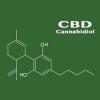Hello, I am looking for ways to deal with HPA axis dysfunction and possibly resetting it. I've read the other topics about that here and I hope that someone helps me with my case.
Long story short, after severe chronic stress, I've developed chronic insomnia. Firstly, I had trouble falling asleep and as of a year now I'm consistently waking up at 4-4:30am and have great trouble falling back asleep. I believe the root cause is HPA axis dysfunction, my salivary cortisol is a on the low side, my ACTH is strangely a bit high and I have slight hypothyroidism(Hashimoto's - although my T3,T4, Anti-TG and Anti-TPO are normal I have structural changes in the thyroid). After getting a good sleep(7 hours, which happens rarely) my TSH is just a bit over the range - 5, optimal range up to 2.5, otherwise it's around 7.
The very first symptoms were needing to drink a lot of water(>3 liters), peeing frequently, I don't have diabetes insipidus, and craving salty and sweet foods.
I have primary Raynaud's syndrome, too.
For the past few months, I have no trouble falling asleep but I wake up at 4:30 almost every night.
Here's what I've tried:
melatonin 1mg/3mg/3mg long release
valerian root
5-htp and l-tryptophan
lemon balm
hops
lavender
glycine 3 grams
alpha-lipoic acid
B12
Forskolin(helps lower the frequency of urination)
Curcumin(both longvida and a 95% extract)
L-theanine
All of that doesn't help.
What I am currently using is:
in the morning
Forskolin
B12 2mg lozenges
Vitamin A
at night
Enerphos(phosphoserine)
Magnesium l-threonate
When I take curcumin, the first few times I get very very tired and sleepy but after that I think it makes my sleep quality and quantity worse.
I'm also using sleep restriction and that's why I have no trouble falling asleep.
There was a period of 2-3 weeks where I was able to get 7 hours of uninterrupted sleep, I think the main reason why is the Enerphos. After that, I started waking up too early - 5:30-6am and now I'm waking up at 4-4:30 again, having trouble falling back asleep.
Other maybe related things - my nose is constantly stuffy since I was a kid. Also, I have depression but I don't know if it's caused by the poor sleep or vice versa - it's the reason for the poor sleep.
I've read about mifepristone but I want to try it as a last resort.
Thank you for your time.



















































